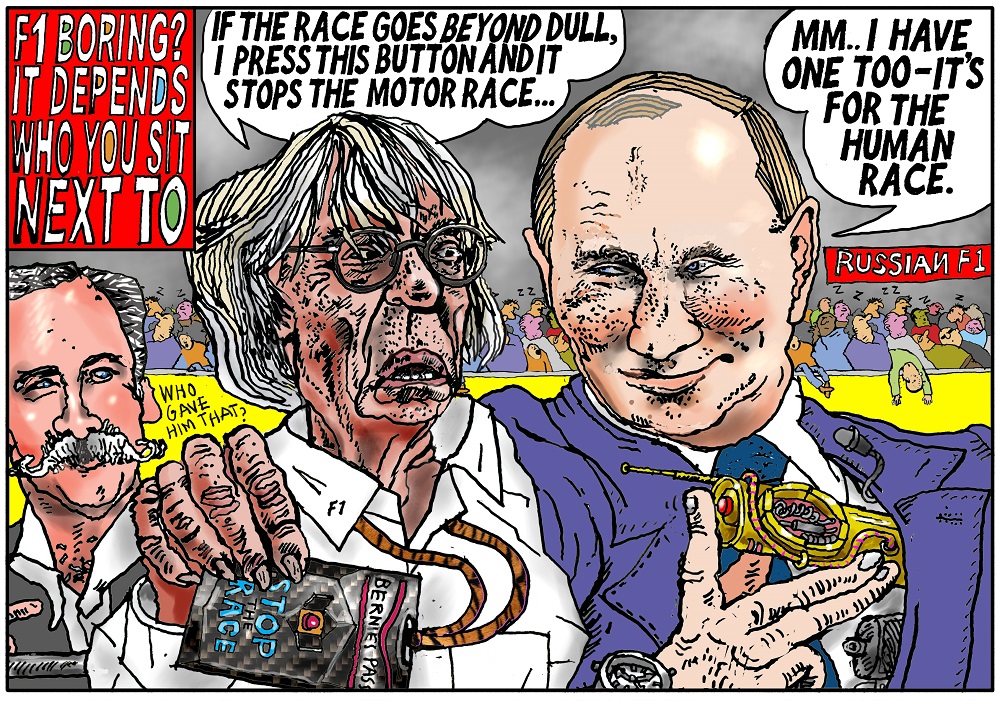Michael Scott | May 10, 2017
Comparisons are odious, so let’s go ahead and make some, taking no notice of the smell.
F1 is cripplingly dull, overpriced, impersonal and irrelevant: an over-rated spectacle of lots of money following even more money round and round, with nothing much happening. To make it worse, an increasingly impenetrable set of rules involving storing or expending of energy means that at any given time, one car cannot be directly compared with another. This energy management means that race tactics are decided not by the driver, but in the pits, and communicated by radio.
It deserves to dwindle away to obscurity.
MotoGP could hardly be a sharper contrast. It’s thrilling, full of variety and excitement, and overflowing with humanity. A genuine sport that not only deserves Olympic status, but also to supplant F1 as an international TV sport of the highest stature.

Okay, I exaggerate. But only a little. Following a 2016 season with a record- number of different winners and three excellent opening flyaway races before the opening of the European season, MotoGP deserves all the compliments. And F1’s typical and most recent GP, in (of all places) Russia, deserves the criticism.
As London Times reporter Rebeca Clancy put it: “… the race will not go down in history as one of the most exciting … the lack of racing or overtaking … will leave Liberty, the sport’s new owners, with something to ponder as they try to attract more fans.”
So what? I mean, we all know this already, or you wouldn’t be reading this magazine and I wouldn’t be writing this column. Why worry about F1 anyway?
My personal reasons are because I grew up liking both car and bike racing, taking part in and writing about both. I came to specialize in bikes firstly because I preferred the taste and the people involved, but more so for professional reasons beyond my control. This was a long time ago, mind, and considering what has happened since to both premier four- and two-wheel versions, no regrets. Apart from those that came from seeing F1 disappear up its own backside 20 or more years ago.
The greater relevance is this: are there warnings that MotoGP should heed? Because nothing is as simple as it at first appears. And furthermore, it is very often the case that motorsport is intrinsically boring, offering tension (of the will-he-break-down variety) in place of action.
Tension rather than excitement has never hindered football’s (soccer’s) popularity, but that’s an altogether different dynamic. At least it’s a personal sport and can be seen as such: the participants have arms, legs and emotions. Sometimes even sincere emotions.
MotoGP is personal in the same way. Riders can be seen to be real people, whereas F1 drivers show only the top of their helmets, and then sulky expressions for all except the winner when they eventually take them off.
But it is important to think back a few years, to before the time the great showman Rossi made bike GP racing into a spectacle that reached beyond its core of bike fans to a far greater world of TV audiences, in the process giving Dorna the base upon which to craft the rules that have started to pay such dividends.
In the Doohan years, five of them, bike racing suffered from just the same dullness that afflicts F1 (hardly his fault, let’s be clear. I still often refer back to his aggrieved comment of the time: “What do you want me to do about it—slow down?”).
The bikes back then were irrelevant—wrongly so, for two-stroke fans, but the fact remains. And the spectacle of watching Mick and Honda hand in hand humiliating everybody else was impressive, but neither edifying nor entertaining.
GP racing survived long enough for the Dorna takeover, and while it wasn’t the Spanish company that forced the switch to four-strokes, they did then come to see the writing on the wall, and found a way to take on the factories and to address if not actually eliminate the sterility of works-team domination. Unlike F1, they sought to make the racing closer by simplifying rather than further complicating the technology.
In this way, the modern racing map was redrawn. It has been at the expense of some technical interest, but so far the compensations have been worth it.
To a lesser extent, the deadening hand of commercially correct PR-speak has not completely taken over. Thanks again to Rossi, still willing on occasion to speak his mind, the riders have not yet been reduced to glum sponsor-citing cyphers
But before we lapse into self-congratulation, be wary. MotoGP’s success has come not in pursuit of a sporting ideal but of a successful business model. It’s all about the profit and loss.
Which, to a large extent, is exactly where F1 lost the plot. CN